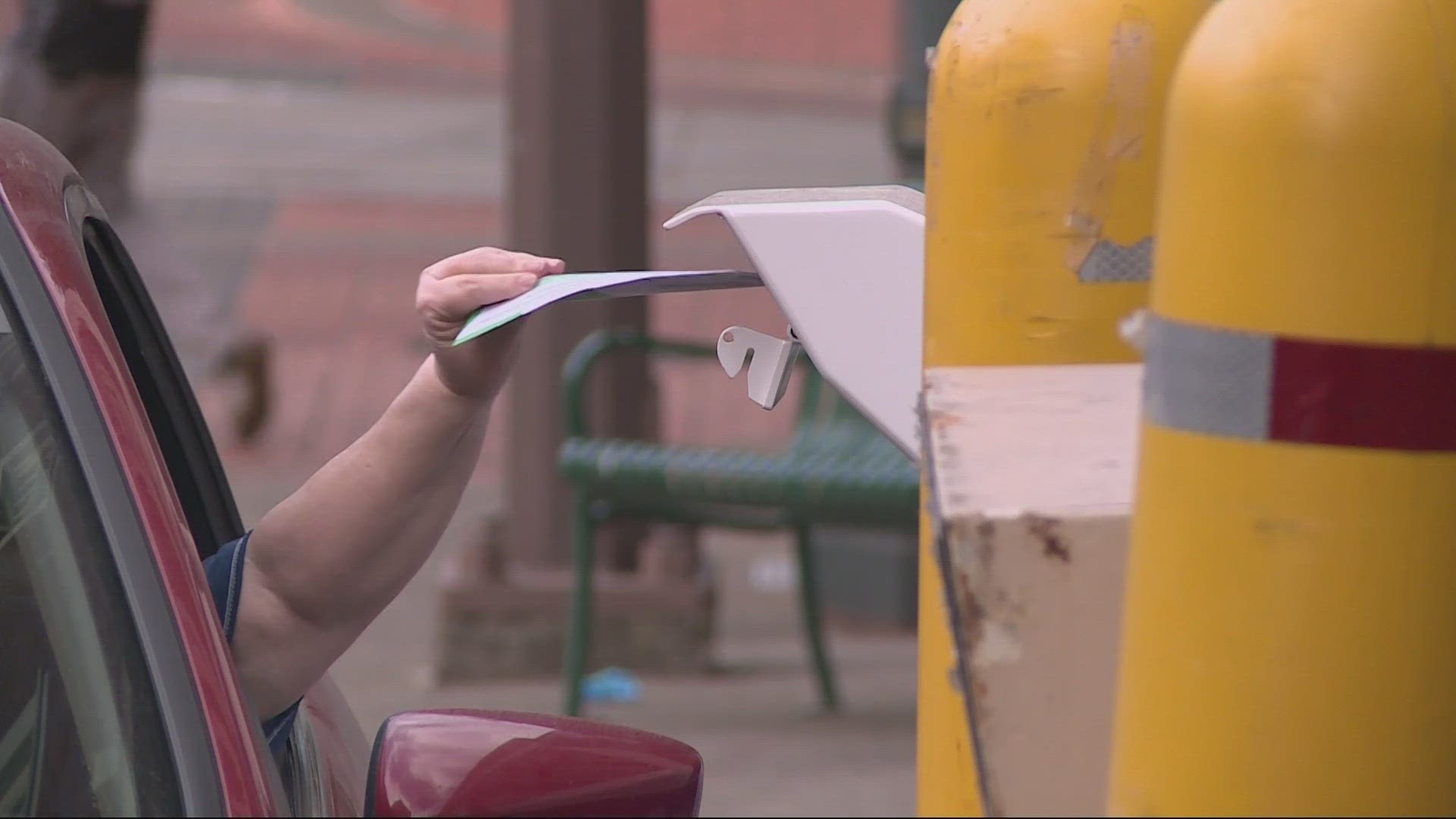PORTLAND, Ore. — As vote returns came in for Tuesday's special election, Multnomah County voters appeared ready to roundly reject Measure 26-238, the initiative to fund free legal aid for tenants at risk of eviction through a new capital gains tax.
Results from the Oregon Secretary of State's office as of 10:45 p.m. had over 82% of Multnomah County voters against, about 18% in favor, with almost 111,000 ballots counted — about 20% of registered voters in the county.
Multnomah County officials noted that they'd received nearly 121,000 ballots as of 8 p.m. Tuesday night, representing just over 21% of registered voters.
Measure 26-238 proposed establishing an adjustable countywide capital gains tax, initially set at 0.75%. Funds raised from that tax would, after administrative expenses, support free legal representation for Multnomah County residents facing eviction.
Capital gains is a term for the profit that someone makes when selling certain things, like property, a home, stocks or mutual funds — even digital currency.
On Tuesday night, supporters of Measure 26-238 expressed disappointment at the apparent loss but also resolved to continue their efforts.
"Feelings are sad but the coalition feels really, really proud of the work that we have put in," said co-organizer Colleen Carroll. "Our goal has always been to raise awareness and bring an important and necessary program to Multnomah county."
Moving forward, Carroll said nothing is off the table but they likely won't pursue another ballot measure. Instead, she said they'll likely seek funding for the program through other means, including state and local government.
Proponents of the measure hailed it as a way to help keep people in their housing, helping to address homelessness at the root.
"When you provide free legal representation of tenants being taken to eviction court or at risk of displacement, in a surprising number of cases you can keep that tenant housed until they can be stabilized," John Bethencourt, co-organizer behind the measure, told KGW ahead of the election.
In places like New York City, where a "Right to Counsel" law is already in place, the data seems to bear out Bethencourt's claim. A recent NYC report stated that 84% of tenants in eviction proceedings who had a lawyer provided through the program avoided eviction.
But opponents of the measure were able to argue against it along similar lines, claiming that it would add to the already high tax burden in Multnomah County and infuse further costs into an unforgiving housing market.
“Measure 26-238 would have penalized people for selling a home, saving for retirement with investments, or building a small business,” said Michele Gila, director of realtor advocacy with Portland Metropolitan Association of Realtors, after initial results showed the measure losing. “People count on these modest investments, especially homeownership, for economic stability and to take care of their families and their futures. Thankfully, voters understood this tax measure would do more harm than good, and said no thank you.”
Opponents also argued that the tax would have unintended consequences, costing some people who can ill-afford to pay. For instance, it would apply to retirement plans that many seniors rely upon.
“Measure 26-238 was not written with everyone in mind. Older populations, or limited-English members of our communities may misunderstand the requirements of this tax, and incur late fees and penalties,” said Metro Councilor Duncan Hwang on Tuesday night. “Eviction representation is vitally important, but the broad taxing mechanism in Measure 26-238 posed an unfair burden on our under-represented and resourced populations.”
The federal government levies a capital gains tax on Americans as well, but it has limits. For instance, the federal tax doesn't count the first $500,000 of profit you make when selling your home as a married couple. It also has limits based on income level.
Measure 26-238 has no such explicit exemptions. As written, it would tax everyone on every bit of capital gains they get, no matter their income level.
Proponents like Bethencourt argued that the measure references the federal definitions for capital gains, so Multnomah County could interpret it to mean that the federal exemptions apply.
Though Multnomah County voters tend to be generous with approving taxes, Measure 26-238 received more public pushback from elected leaders than previous examples, including Congressman Earl Blumenauer, Metro President Lynn Ann Peterson, Portland Mayor Ted Wheeler and two county commissioners, among others.
“Good intentions don’t always lead to good policy. Voters understood that we don’t need another tax on local families and small businesses when we already have tax-funded programs in place to help tenants facing eviction,” said Andrew Hoan, CEO and President of Portland Business Alliance. “We remain committed to building on what voters have already approved to ensure existing dedicated resources reach those who need support.”
The measure received support from the Urban League of Portland, the Democratic Party of Multnomah County and two major labor unions.

